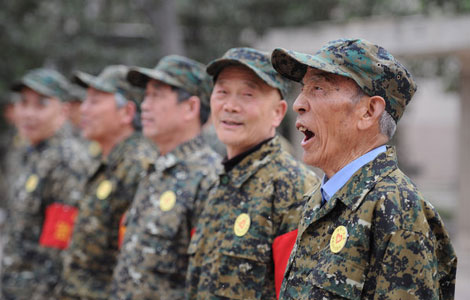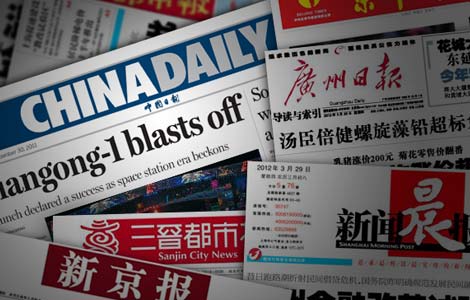 |
|
|
|
|||||||||||
BEIJING - Chinese environmental campaigners have accused 46 Chinese and multinational clothing brands and retailers of purchasing from suppliers who illegally discharge polluted water in China.
Multinational companies Zara, Adidas, Nike, Calvin Klein, Armani, Walmart and Carrefour, and China's 361 Degrees, Anta and Youngor Group, were among the companies named, according to a report released Monday by five Chinese non-governmental organizations (NGO), including Friends of Nature and the Institute of Public and Environmental Affairs (IPEA).
Forty-six out of 48 surveyed clothing brands and retailers were found to have bought products from Chinese textile enterprises that had illegal discharge records, the report said.
The report said that more than 6,000 environmental violations of Chinese textile enterprises had been recorded in the China Water Pollution Map, a database launched by the IPEA in 2006 with an effort to prevent further deterioration of China's water quality.
Those violations included building secret discharge channels, discharging untreated sewage and falsely operating sewage disposal facilities -- actions that violate Chinese environmental laws and seriously damage the country's water environment, the report said
The report said letters have been sent asking these companies to investigate their supply chains and make greener purchases so as to push suppliers to correct their illegal actions. Only 16 companies have replied.
Ma Jun, director of the IPEA, urged those companies that failed to respond to take action, saying that continued efforts will be made to dynamically evaluate those enterprises.
The report also suggested that clothing brands and retailers should use open data to check their suppliers to help reduce pollution along their supply chains.
Pollution control over the country's textile industry has been difficult, as dyeing companies, responsible for 80 percent of the sector's pollution, are mostly mid- and small-sized enterprises.
Data from a 2010 report on China's environment released by the environmental protection authority showed that the textile industry discharged 2.46 billion tonnes of waste water in 2010, putting it third among 39 industries.

|

|

|

|

|

|